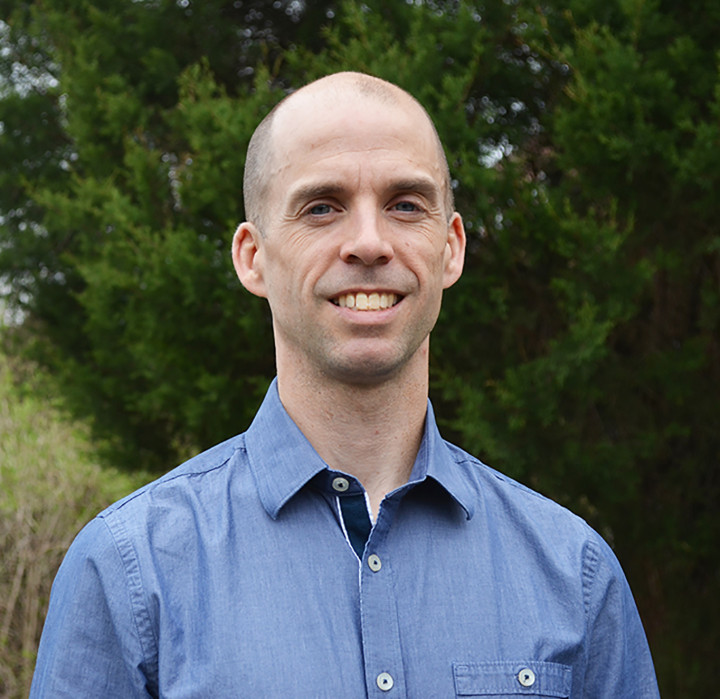Michael Hicks: UMD Distinguished Scholar Teacher Award
Some people know him as the PLUM co-director. Others know him as the programming languages professor. Still others know him as the lecturer in an online course. Regardless of which hat he wears, Michael Hicks always leaves a positive impact on those around him. Thus, it comes as no surprise that he was recently awarded the UMD Distinguished Scholar Teacher Award.
Award Description
This award honors senior faculty who have demonstrated excellence in three main activities: research, teaching, and service. Professors are often involved with obtaining research grants, mentoring PhD students, and working on projects that bring esteem to the university. Another important component of being a professor is about dedicating time to teaching students. Outside of these two main activities, those who volunteer their time to revise curriculum or sit on committees show their dedication to the field and truly embody the image of a distinguished professorate.
Most awards pick one of these three aspects to emphasize, but the Distinguished Scholar Teacher Award is unique. Instead, it chooses to look at the candidate holistically by giving equal weight to each of these three areas.
Research
Research is an area that Hicks has years of experience in. After graduating from the University of Pennsylvania with a Ph.D. in Computer and Information Science, he then built up his experience from an array of prestigious research institutions. Today, Hicks is the co-director of PLUM, the lab for Programming Languages research at the University of Maryland, and is also involved with the Maryland Cybersecurity Center.
His research deals with how programming language methods can be applied to computer security. Software breaches often occur when two things happen: a) people write bad software, and b) a clever attacker exploits the mistakes to turn the program into something nefarious. The current attitude in cybersecurity revolves around finding bugs in released software, building a software version 2.0, and then starting the process over again. Hicks has a better idea.
“I’m interested in how I can build the software right in the first place,” he explains. “[I want to] be able to prove properties about programs and push out these ideas that by using the right language or testing technique or analysis tool, we can get programs right [from the start].”
Teaching
Inside the classroom, Hicks has been just as successful. His passion for teaching stems from an interest in communication. He explains, “My family used to argue all the time. When I was dating my wife and she came over for dinner, she used to say, ‘wow you guys hate each other.’ I told her, ‘no no it’s just fun.’ Discussion is [about] probing into things [and] why you think it’s true. Maybe we got too heated about it, but it forced us to think about certain things.”
This inquisitive mindset naturally translated into an engaging teaching style. Hicks loves to approach problems from different directions and break down difficult topics into smaller pieces. Students enthusiastically share their positive class experience online, commenting on how Hicks makes boring material interesting and how he always encourages students to ask questions and learn as much as they can.
In the academic world, research tends to have an oversized role, so Hicks is extremely grateful that this award commemorates teaching excellence. “It would be hard for me to not spend so much time on students in my class,” he says enthusiastically. “Without teaching, it almost feels incomplete.”
Service
Outside of the lab and the classroom, Hicks finds time to be involved in the peer review process for science papers, further exemplifying his communication skills. Some of the other activities he is involved in include being a chair of a conference, acting as associate editor at a journal, and maintaining a personal blog.
Although the blog sounds less formal, it has the same goal as his research papers. When cool new research is published in journals, only a narrow community is interested. In contrast, some of his blog articles have received over 25,000 page views. “I started this blog almost a year ago with this idea of trying to communicate ideas [from my research in cybersecurity] that were underappreciated,” Hicks says. “A lot of what we do in security and programming languages is relevant to a lot of people.”
Hicks also makes time to conduct an online class on software security via Coursera. The first time he conducted the class, he had a total of 1500 students from around the world pass the class. If he counts the number of people who simply watched his lectures, that number shoots up to an incredible 20,000.
Leaving a Legacy
Throughout his computer science career, Hicks has continuously exemplified excellence in everything he does, whether it is research, teaching, or service. It is no wonder that he has been awarded with such a prestigious award. In the future, Hicks will continue to leave his mark and establish his legacy.
Likewise, he leaves us with one important insight: “There’s so much to learn in computer science. Like a musician who learns new scales or styles, you can do the same thing. [Computer science is] a creative profession. It’s technical, but lots of things are technical. I find it gratifying to try to be better all the time.”
The Department welcomes comments, suggestions and corrections. Send email to editor [-at-] cs [dot] umd [dot] edu.
